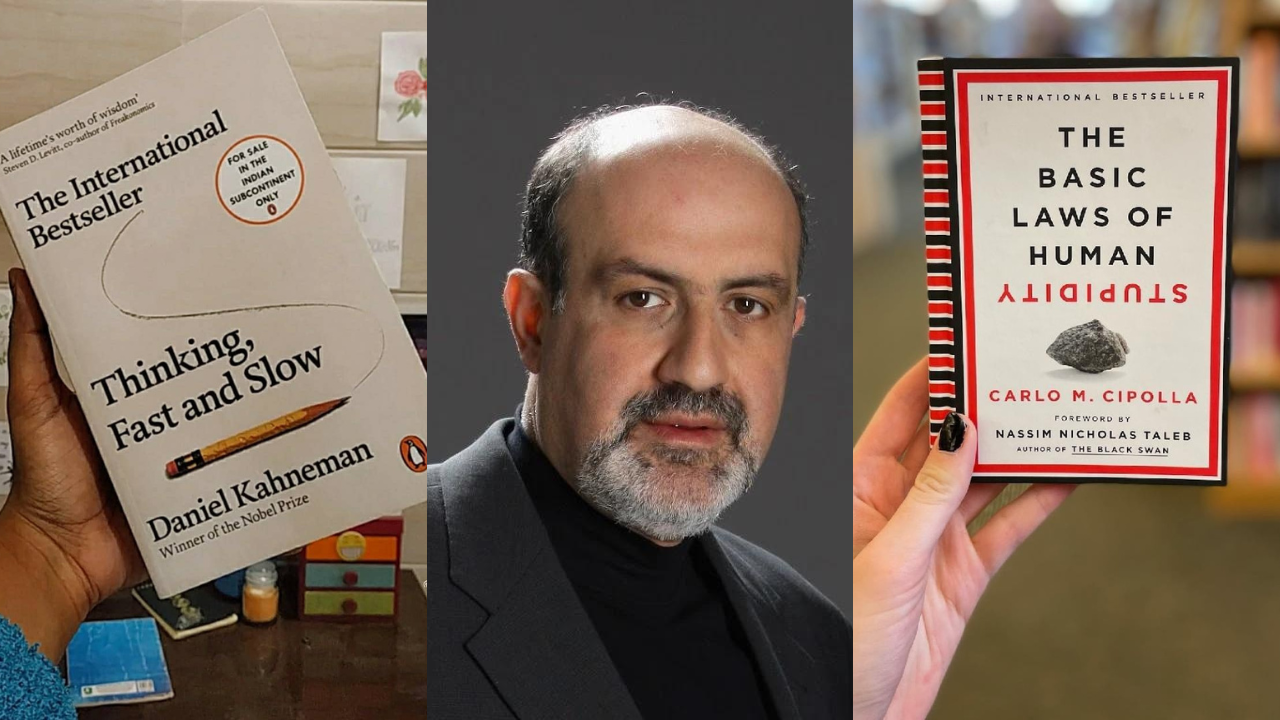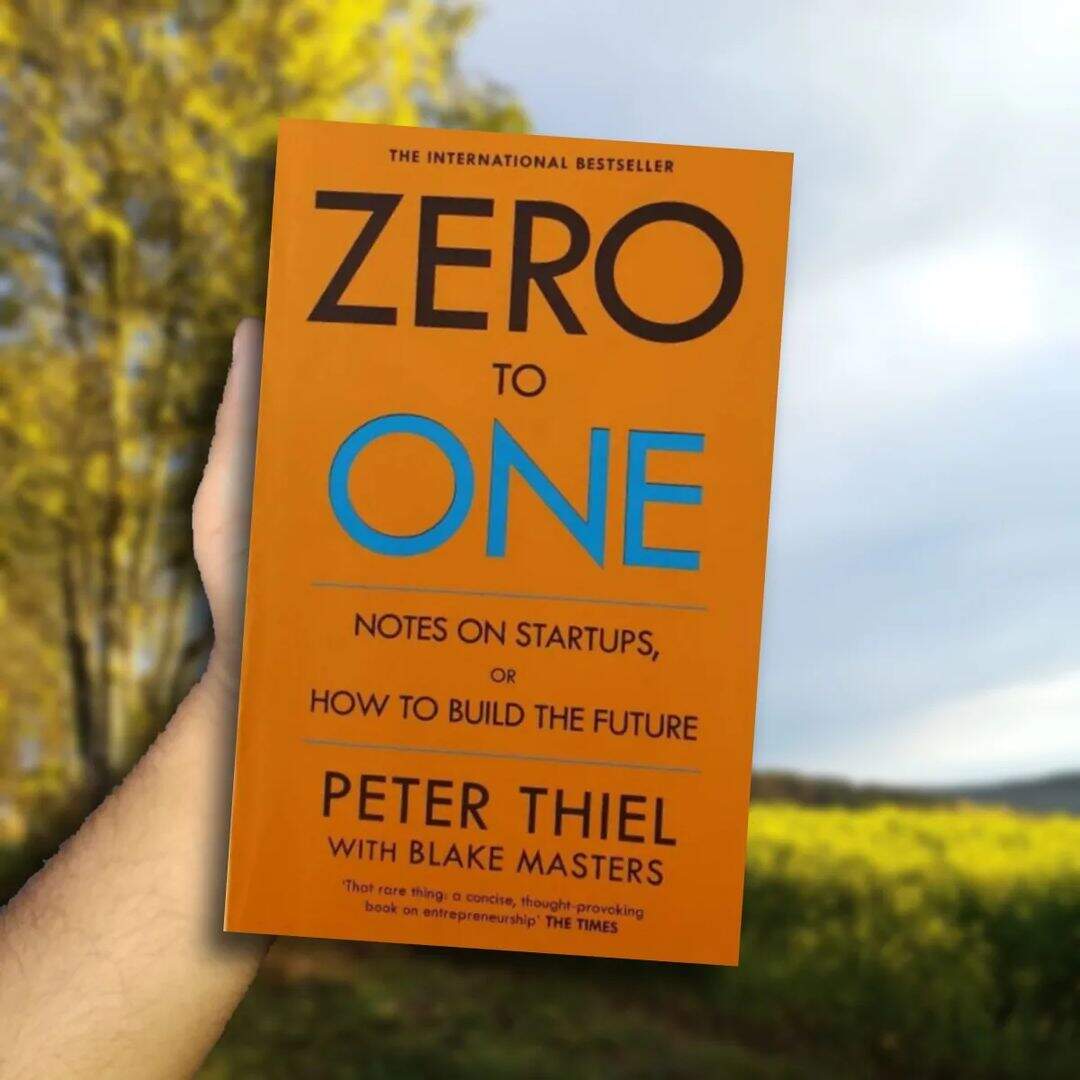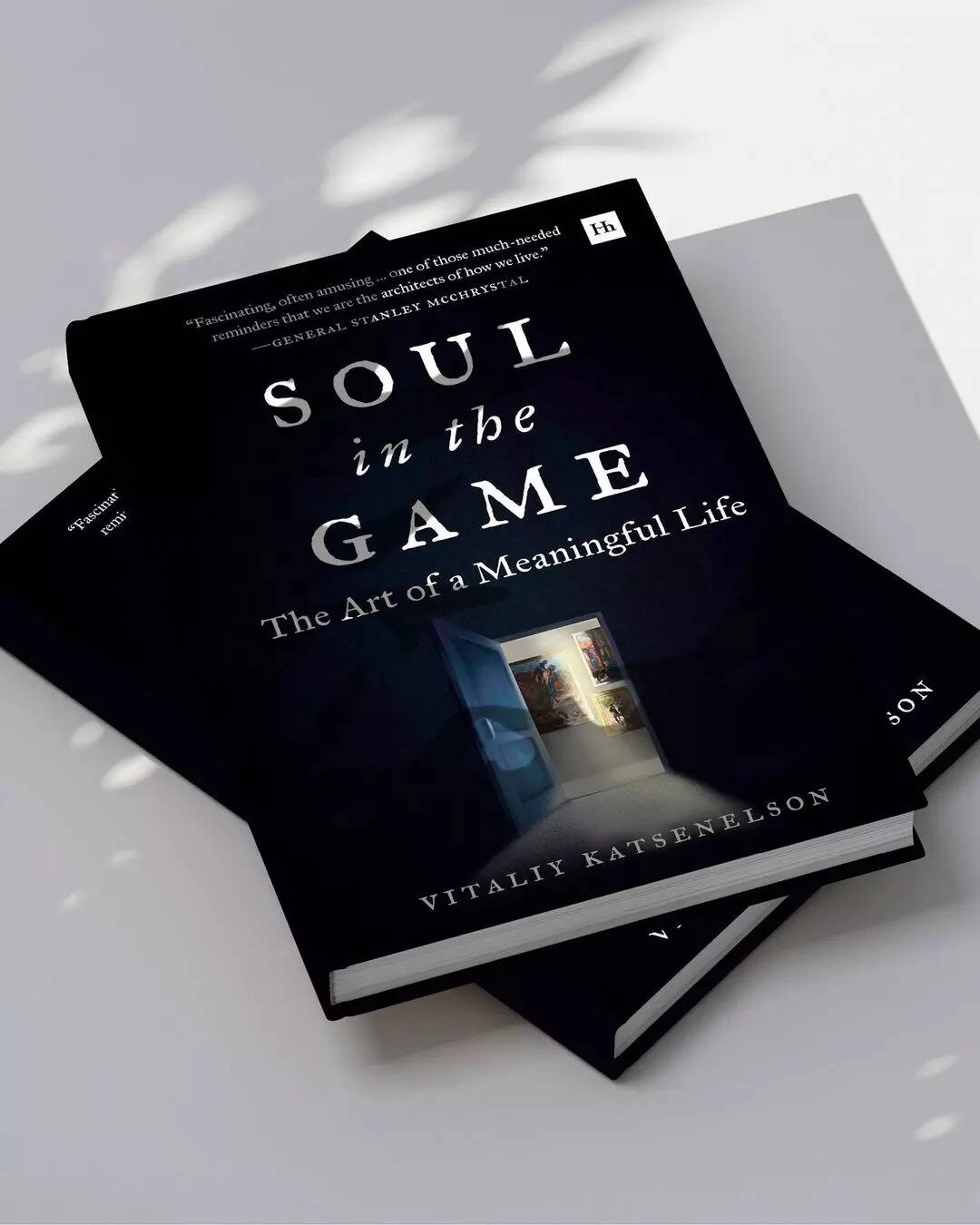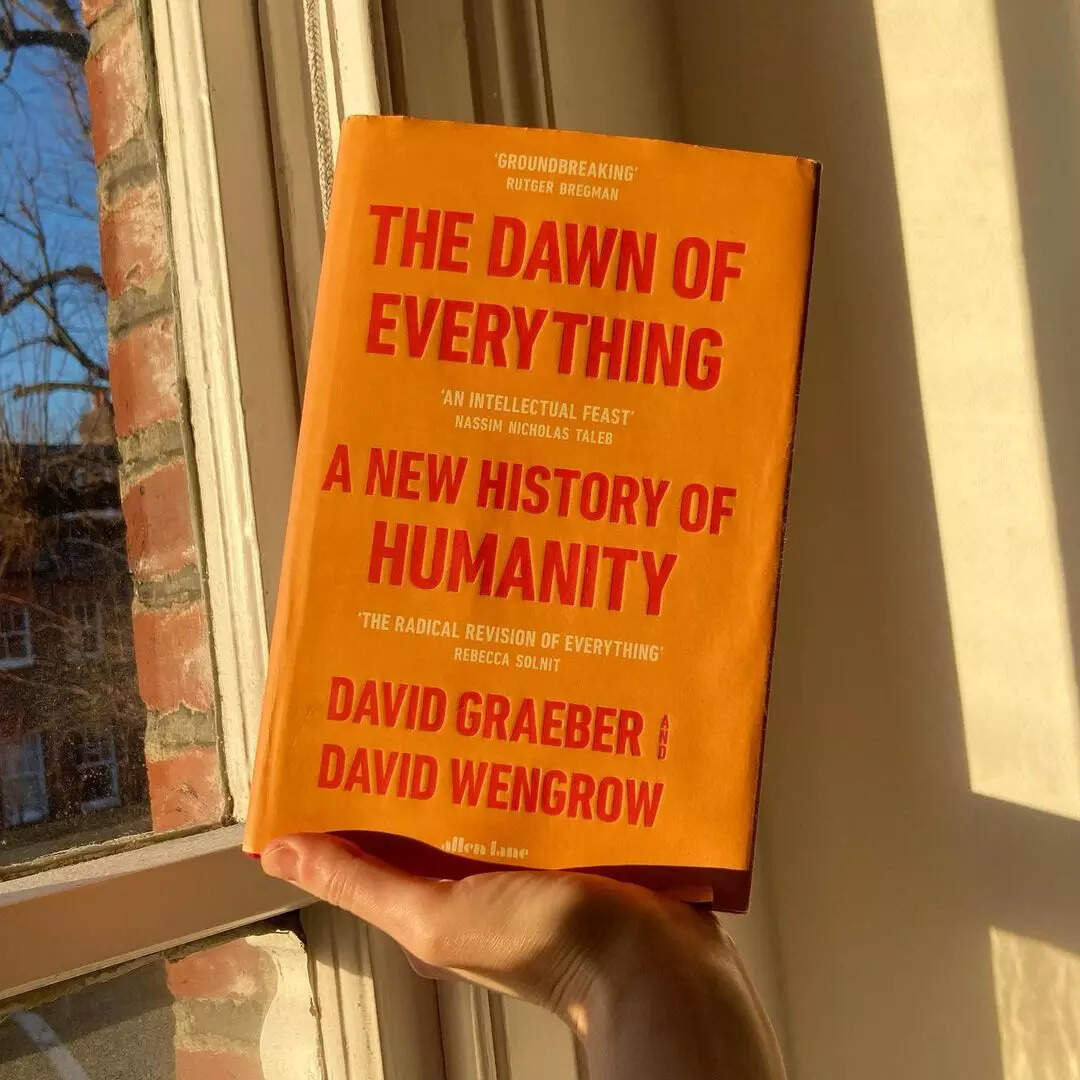Books that shook the business world: The Anarchy by William Dalrymple
We live in a world dominated by colossal corporations. The likes of Microsoft and Apple are bigger than most economies. Not long ago, however, a British company dwarfed these giants, yet few people know its history or the valuable lessons it can teach us today.
I am talking about the East India Company (EIC), an unrelenting force in world affairs from 1600 until as recently as the 1870s. Its history and importance are perfectly summed up by the Scottish historian William Dalrymple in his 2019 book, The Anarchy: The Relentless Rise of the East India Company.
I read it last Christmas and could barely put it down. It spoke both to my south Asian roots and my accountancy specialism, since the company’s first governor, Sir Thomas Smythe (1558-1625), was an auditor. Dalrymple, who has lived most of his life in India, meticulously explains how this one company became the de facto ruler of the subcontinent for more than a century.

Welcome to our new series on key titles that have helped shape business and the economy – as suggested by Conversation writers. We have avoided the Marxes and Smiths, since you’ll know plenty about them already. The series covers everything from demographics to cutting-edge tech, so stand by for some ideal holiday reading.
The East India Company was set up as a “joint stock” company, meaning it was controlled by its investors. And it wasn’t just elite figures like the mayor of London who held stakes, but British people from every walk of life – from sandal makers to leather workers to wine merchants.
This model meant access to essentially unlimited finance, since more investors could always be found. They were attracted by the company’s official charter from Queen Elizabeth in 1600, which gave it an exclusive trading monopoly over India.
The company gradually grew in military might and was able to exploit the chaos and instability caused by the decline of the Mughal empire, which had ruled large parts of the subcontinent until the early 18th century (this is “the anarchy” Dalrymple refers to in the title).
His book details the greed and arrogance of important company figures such as Lord Robert Clive (1725-1774), who became the first British governor of Bengal, and Warren Hastings (1732-1818), the first governor-general of India. Clive is described as a “violent, utterly ruthless and intermittently mentally unstable corporate predator”, though also an “extremely capable leader of the company and its military force in India”.

A pivotal moment came under his leadership in 1757, when he defeated the Bengali leader (the nawab) and his French allies at the Battle of Plassey. Dalrymple recounts how Clive personally entered the treasury of the nawab in the city of Murshidabad, and ended up taking most of it for himself. He “returned to Britain with a personal fortune then valued at £234,000” (£35 million in today’s money).
From Bengal, the East India Company came to exert control over large parts of the subcontinent, with numerous battles, massacres and atrocities along the way. Yet this victory in Bengal also ironically led to one of its biggest crises: the value of the stock had doubled on news of the company’s success, but then collapsed in 1769 after it had become overextended militarily and commercially, and faced a famine in Bengal.
Dalrymple describes how company tax collectors were ruthless during this famine, brutally enforcing high taxes in what was euphemistically described as “shaking the pagoda tree”. These would have been major human rights violations today, but weren’t enough to prevent a cash crunch in which the company was unable to pay creditors or taxes.
By this stage, the company was responsible for a staggering 50% of global trade. In 1773, it became the original institution deemed “too big to fail” as the British government stepped in with “one of history’s first mega-bailouts”.
The company paid with some restrictions in its autonomy, but remained extremely powerful for years to come. Its private army peaked at around 250,000 men in the early 19th century, bigger than that of the British army (Dalrymple likens it to Walmart having its own fleet of nuclear submarines). Thus, the colonial takeover of India was achieved not by state power but corporate strategy, backed by private military force.
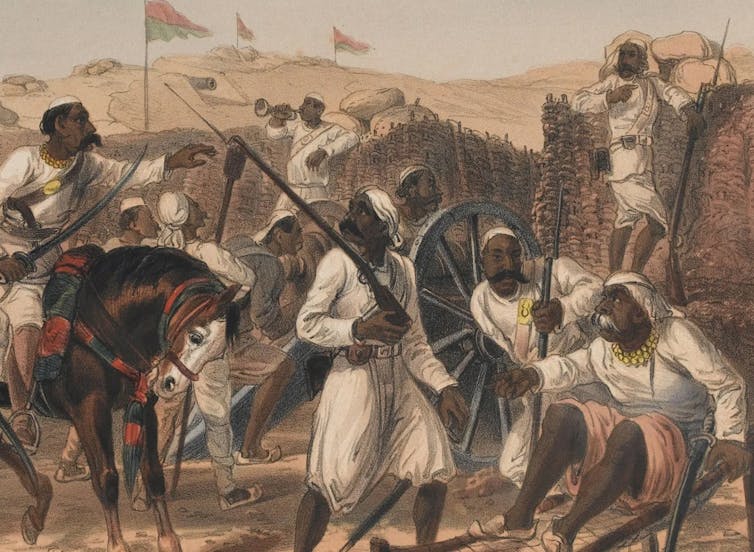
It must have seemed like the company would continue indefinitely – but growing criticism of its tough trading tactics and corruption led to successive efforts by the British government to limit its power. The final straw was the mutiny of 1857, which started among Indian soldiers in the EIC army and spread across the subcontinent.
After it was put down by the British, with some 100,000 Indians killed, the government assumed direct control of India. So began the era of the British Raj. The EIC military was absorbed by the Crown and within a few years, the company was dissolved.
Moral lessons
For me, the most important takeaway from The Anarchy is summed up by a quote from one of its cast of characters, the 18th-century Tory politician and lord chancellor, Baron Edward Thurlow:
Corporations have neither bodies to be punished, nor souls to be condemned; they therefore do as they like.
Dalrymple vividly describes how we can still see the results today in Powis castle in central Wales, of all places. It is “awash with loot from India, room after room of imperial plunder, extracted by the East India Company … there are more Mughal artefacts stacked in this private house in the Welsh countryside than are on display in any one place in India – even the National Museum in Delhi”.

The Anarchy reminds us that the most profitable and innovative businesses can become vessels for exploitation without appropriate accountability and governance. The book is on its way to becoming a modern classic for its analysis of this decay.
Today’s massive corporations lack the company’s military strength, and corporate governance has thankfully improved over the last couple of centuries. Yet these entities are still incredibly powerful. Among the world’s top 100 economic operators, almost 70% are corporations.
The biggest companies are set to dominate new technologies like AI, which will make them seem even more unassailable. The demise of the British East India Company at least reminds us that governments ultimately have the power to reassert themselves, if the will is there. Through all the corporate brutality and corruption on display, The Anarchy does carry that message of hope.
===================================================================
किताबें जिन्होंने व्यापार जगत को हिलाकर रख दिया: विलियम डेलरिम्पल द्वारा द एनार्की
theconversation.com/books-that-shook-the-business-world-the-anarchy-by-william-dalrymple-235493
अनवर हलारी
हम एक ऐसी दुनिया में रहते हैं, जहाँ विशाल निगमों का बोलबाला है। Microsoft और Apple जैसी कंपनियाँ अधिकांश अर्थव्यवस्थाओं से बड़ी हैं। हालाँकि, कुछ समय पहले, एक ब्रिटिश कंपनी ने इन दिग्गजों को बौना बना दिया था, फिर भी बहुत कम लोग इसके इतिहास या आज यह हमें क्या मूल्यवान सबक सिखा सकती है, इसके बारे में जानते हैं।
मैं ईस्ट इंडिया कंपनी (EIC) के बारे में बात कर रहा हूँ, जो 1600 से लेकर हाल ही में 1870 के दशक तक विश्व मामलों में एक अडिग शक्ति थी। इसके इतिहास और महत्व को स्कॉटिश इतिहासकार विलियम डेलरिम्पल ने अपनी 2019 की पुस्तक, द एनार्की: द रिलेंटलेस राइज़ ऑफ़ द ईस्ट इंडिया कंपनी में पूरी तरह से अभिव्यक्त किया है।
मैंने इसे पिछले क्रिसमस पर पढ़ा और इसे मुश्किल से छोड़ पाया। यह मेरी दक्षिण एशियाई जड़ों और मेरी अकाउंटेंसी विशेषज्ञता दोनों को दर्शाता है, क्योंकि कंपनी के पहले गवर्नर, सर थॉमस स्माइथ (1558-1625), एक ऑडिटर थे। डेलरिम्पल, जिन्होंने अपना अधिकांश जीवन भारत में बिताया है, सावधानीपूर्वक बताते हैं कि कैसे यह एक कंपनी एक सदी से भी अधिक समय तक उपमहाद्वीप की वास्तविक शासक बन गई।
प्रमुख शीर्षकों पर हमारी नई श्रृंखला में आपका स्वागत है, जिन्होंने व्यवसाय और अर्थव्यवस्था को आकार देने में मदद की है - जैसा कि वार्तालाप लेखकों द्वारा सुझाया गया है। हमने मार्क्स और स्मिथ को नहीं चुना है, क्योंकि आप उनके बारे में पहले से ही बहुत कुछ जानते होंगे। श्रृंखला जनसांख्यिकी से लेकर अत्याधुनिक तकनीक तक सब कुछ कवर करती है, इसलिए कुछ आदर्श अवकाश पढ़ने के लिए तैयार रहें।
ईस्ट इंडिया कंपनी को एक "संयुक्त स्टॉक" कंपनी के रूप में स्थापित किया गया था, जिसका अर्थ है कि इसे इसके निवेशकों द्वारा नियंत्रित किया जाता था। और इसमें केवल लंदन के मेयर जैसे कुलीन व्यक्ति ही हिस्सेदारी नहीं रखते थे, बल्कि हर क्षेत्र के ब्रिटिश लोग - चप्पल बनाने वालों से लेकर चमड़े के कामगारों से लेकर शराब के व्यापारियों तक शामिल थे।
इस मॉडल का मतलब अनिवार्य रूप से असीमित वित्त तक पहुंच था, क्योंकि अधिक निवेशक हमेशा मिल सकते थे। वे 1600 में महारानी एलिजाबेथ से कंपनी के आधिकारिक चार्टर से आकर्षित हुए, जिसने इसे भारत पर एक विशेष व्यापारिक एकाधिकार दिया।
कंपनी धीरे-धीरे सैन्य शक्ति में वृद्धि हुई और मुगल साम्राज्य के पतन के कारण उत्पन्न अराजकता और अस्थिरता का फायदा उठाने में सक्षम थी, जिसने 18वीं शताब्दी की शुरुआत तक उपमहाद्वीप के बड़े हिस्से पर शासन किया था (यह "अराजकता" है जिसका उल्लेख डेलरिम्पल ने शीर्षक में किया है)।
उनकी पुस्तक में लॉर्ड रॉबर्ट क्लाइव (1725-1774), जो बंगाल के पहले ब्रिटिश गवर्नर बने, और वॉरेन हेस्टिंग्स (1732-1818), भारत के पहले गवर्नर-जनरल जैसे महत्वपूर्ण कंपनी के लोगों के लालच और अहंकार का विवरण दिया गया है। क्लाइव को "हिंसक, पूरी तरह से क्रूर और बीच-बीच में मानसिक रूप से अस्थिर कॉर्पोरेट शिकारी" के रूप में वर्णित किया गया है, हालांकि वह "भारत में कंपनी और उसके सैन्य बल का एक अत्यंत सक्षम नेता" भी था।
थॉमस गेन्सबोरो द्वारा रॉबर्ट क्लाइव c.1764। राष्ट्रीय सेना संग्रहालय
1757 में उनके नेतृत्व में एक महत्वपूर्ण क्षण आया, जब उन्होंने प्लासी की लड़ाई में बंगाली नेता (नवाब) और उनके फ्रांसीसी सहयोगियों को हराया। डेलरिम्पल ने बताया कि कैसे क्लाइव ने मुर्शिदाबाद शहर में नवाब के खजाने में व्यक्तिगत रूप से प्रवेश किया, और इसका अधिकांश हिस्सा अपने पास ले लिया। वह "234,000 पाउंड (आज के पैसे में 35 मिलियन पाउंड) की निजी संपत्ति के साथ ब्रिटेन लौट आया"।
बंगाल से, ईस्ट इंडिया कंपनी ने उपमहाद्वीप के बड़े हिस्से पर नियंत्रण कर लिया, जिसके दौरान कई लड़ाइयाँ, नरसंहार और अत्याचार हुए। फिर भी बंगाल में इस जीत ने विडंबनापूर्ण रूप से इसके सबसे बड़े संकटों में से एक को जन्म दिया: कंपनी की सफलता की खबर पर स्टॉक का मूल्य दोगुना हो गया था, लेकिन फिर 1769 में सैन्य और वाणिज्यिक रूप से बहुत अधिक विस्तारित होने के बाद यह ढह गई, और बंगाल में अकाल का सामना करना पड़ा।
डेलरिम्पल बताते हैं कि इस अकाल के दौरान कंपनी के कर संग्रहकर्ता कितने निर्दयी थे, उन्होंने क्रूरतापूर्वक उच्च करों को लागू किया, जिसे "पैगोडा वृक्ष को हिलाना" कहा जाता है। आज ये मानवाधिकारों का बड़ा उल्लंघन होता, लेकिन नकदी संकट को रोकने के लिए पर्याप्त नहीं था, जिसमें कंपनी लेनदारों या करों का भुगतान करने में असमर्थ थी।
इस स्तर तक, कंपनी वैश्विक व्यापार के चौंका देने वाले 50% के लिए जिम्मेदार थी। 1773 में, यह मूल संस्था बन गई जिसे "विफल होने के लिए बहुत बड़ा" माना जाता था क्योंकि ब्रिटिश सरकार ने "इतिहास के पहले मेगा-बेलआउट" में से एक के साथ कदम रखा था।
कंपनी ने अपनी स्वायत्तता में कुछ प्रतिबंधों के साथ भुगतान किया, लेकिन आने वाले वर्षों में बेहद शक्तिशाली बनी रही। 19वीं शताब्दी की शुरुआत में इसकी निजी सेना में लगभग 250,000 लोग थे, जो ब्रिटिश सेना से भी बड़ी थी (डेलरिम्पल इसकी तुलना वॉलमार्ट से करते हैं जिसके पास परमाणु पनडुब्बियों का अपना बेड़ा है)। इस प्रकार, भारत का औपनिवेशिक अधिग्रहण राज्य शक्ति द्वारा नहीं बल्कि निजी सैन्य बल द्वारा समर्थित कॉर्पोरेट रणनीति द्वारा हासिल किया गया था।
विद्रोही सिपाही, 1857 (विलियम सिम्पसन, ई. वॉकर और जी.एफ. एटकिंसन के बाद अन्य, 1857-58) राष्ट्रीय सेना संग्रहालय
ऐसा लग रहा था कि कंपनी अनिश्चित काल तक चलती रहेगी - लेकिन इसकी सख्त व्यापारिक रणनीति और भ्रष्टाचार की बढ़ती आलोचना के कारण ब्रिटिश सरकार ने इसकी शक्ति को सीमित करने के लिए लगातार प्रयास किए। अंतिम तिनका 1857 का विद्रोह था, जो ईआईसी सेना में भारतीय सैनिकों के बीच शुरू हुआ और पूरे उप में फैल गया।
